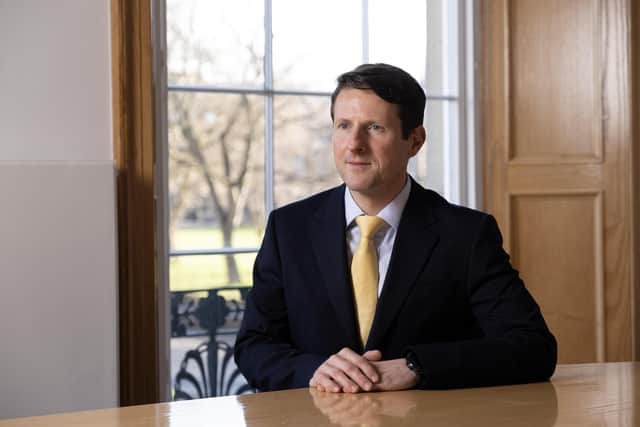Scottish independence would prompt many to reflect on succession planning - Fraser Scott
Scottish independence would prompt many (again) to reflect on their succession planning, not least the considerable number of Scots who spend the working week south of the border but return home at weekends. For them, the threat of falling under a new, potentially less favorable, tax regime might reignite the possibility of changing their domicile status. The practicalities of achieving that, both from a personal and legal/tax perspective, are not insignificant, but for some it may be the right decision to take.
An independent Scotland would doubtless present a complex set of challenges for the advisory community. Whilst we have become accustomed to relative consistency in taxation throughout the UK, independence could bring seismic changes, particularly to capital taxes such as Capital Gains Tax (CGT) and Inheritance Tax (IHT). We have some experience of this already, with the introduction of the Scottish Rate of Income Tax, which sees those living in Dunbar paying more tax on their earnings than those living in Berwick upon Tweed, even though they sit a mere 30 miles apart.
Advertisement
Hide AdAdvertisement
Hide AdOf course, for centuries we have had to navigate the different legal systems that already exist within the territory of the UK, notably in relation to Wills and succession rules. For example, Wills drawn up in Scotland require a signature on every page and a final page witness to be “self-proving”. In England, the requirement is one signature and two witnesses on the final page only. Further, the age at which you can prepare a Will is markedly different between Scotland (age 12) and England (age 18).


As ever with a Will, clarity of purpose is of paramount importance and no lawyer would subscribe to former US President Harry Truman’s pithy remark that: ‘If you can’t convince them, confuse them’. Open and frank discussions with clients about desired outcomes are a must when, as is often the case, family politics comes into play. This rings especially true when a client wishes to disinherit someone, as certain family members are protected in Scotland by what is known as Legal Rights.
Legal Rights is a distinctive feature of Scots Law and affects a person’s moveable estate, which includes amongst other things bank accounts, share portfolios, cars, furniture, and jewellery. It offers protection from being disinherited to a spouse or civil partner, children (but not including stepchildren) and means they are entitled to claim one third or one half of the moveable estate, depending on who survives the deceased.
There are other traps for the unwary posed by Legal Rights. Whilst it is only the movable estate that is taken into account in the calculation, there can be circumstances where a heritable asset can inflate the value of a Legal Rights claim. For example, if your family business owns land or buildings, your shareholding is a movable asset, but will reflect the value of the underlying heritable property.
Whilst Legal Rights is a thoroughly Scottish affair, in England the Inheritance (Provision for Family and Dependants) Act 1975 enables certain classes of people who feel aggrieved at being omitted from a Will to apply to the court for adequate financial provision. The court then has a limited power to make orders which interfere with the effect of a Will, or the effect of intestacy rules, only to the extent that such provision is reasonably necessary for the maintenance of the applicant.


With a question mark remaining over the sovereign status of Scotland, it is entirely possible complex wealth management and tax planning will not be getting any easier in the near future. Clients with cross-border interests will continue to do best by engaging with advisors who have knowledge of the different jurisdictions. It ensures they fully understand both the opportunities and threats to their succession plans that exist north and south of the border, and act accordingly. As ever, professional legal advice is a must.
Fraser Scott is a Partner, Murray Beith Murray